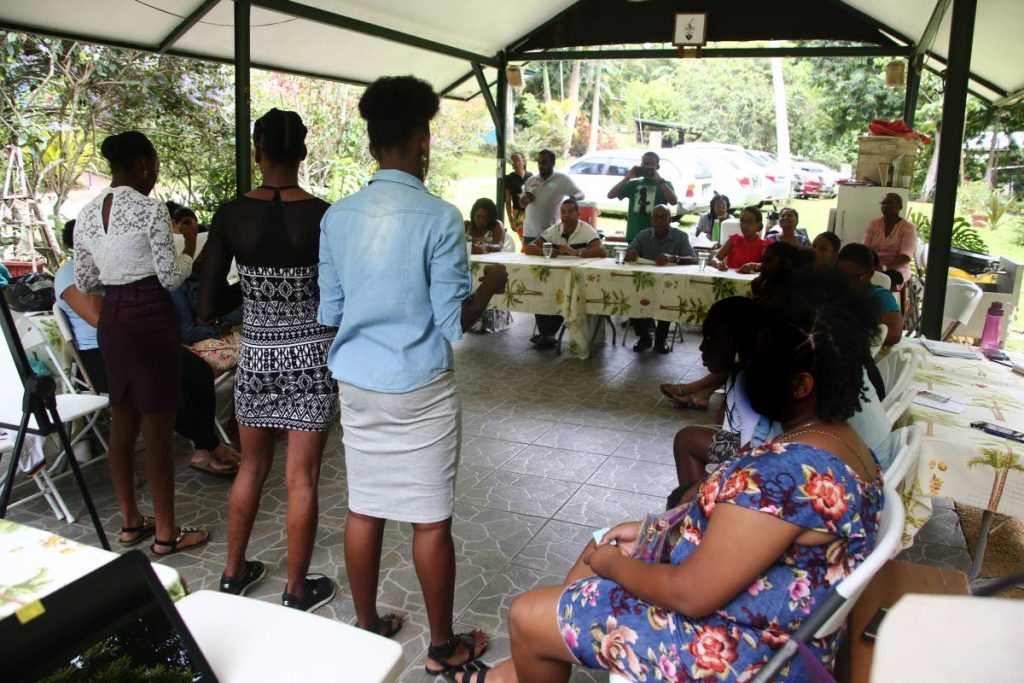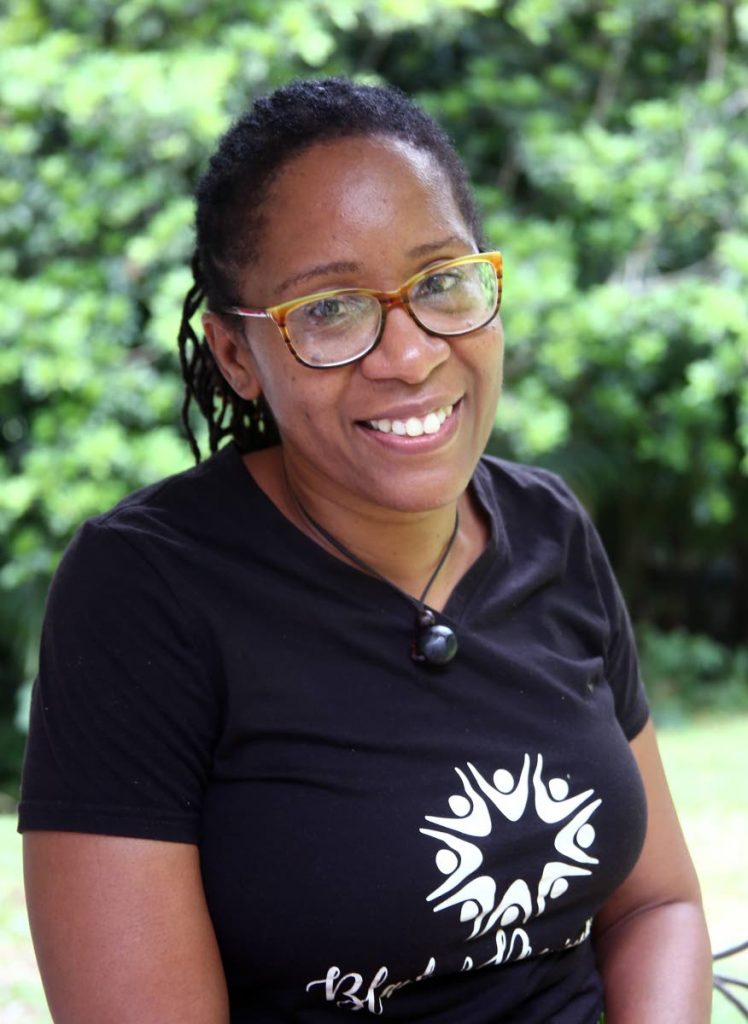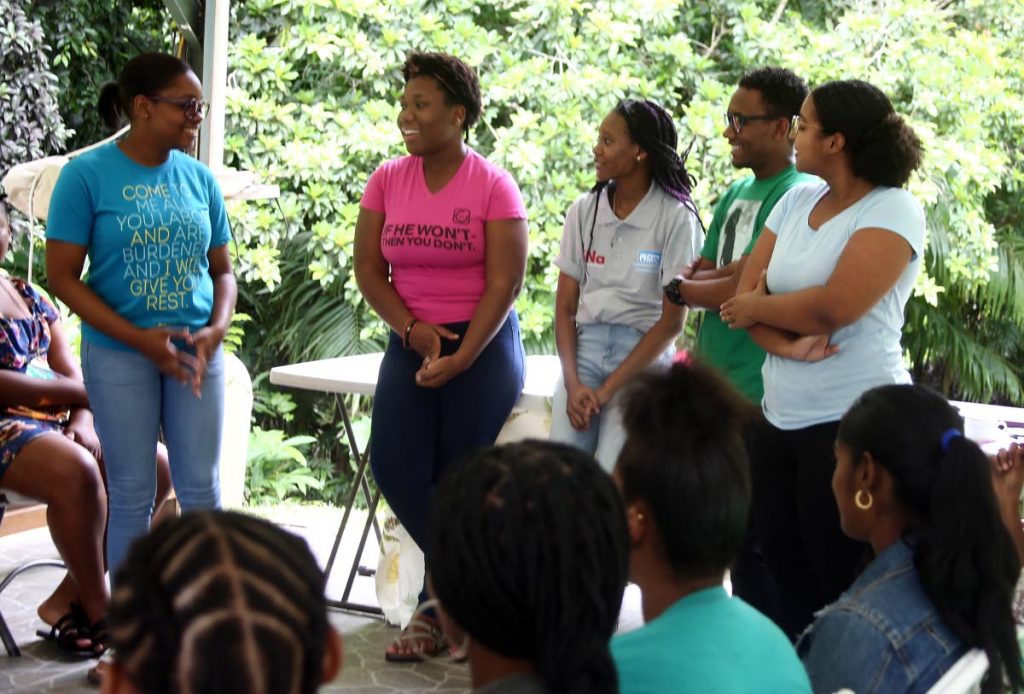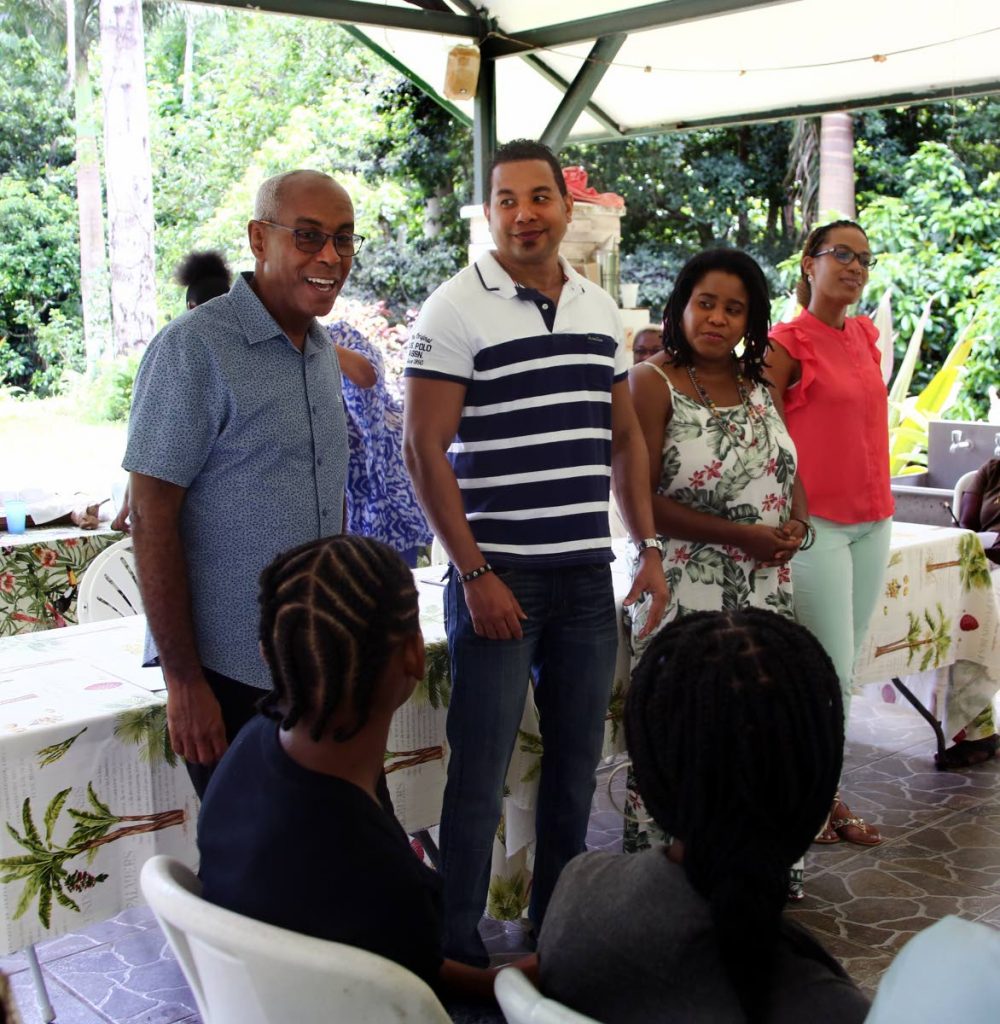St Jude's girls shown they deserve beauty in their life

Residents from St Jude’s Home for Girls in Belmont have not had the easiest or safest lives. Typically, these girls become wards of the State because they are deemed uncontrollable or heinous acts have happened to them.
For one week however, 12 girls from the home got a break from their every-day life in St Jude’s and were treated to an excursion to the lush and exquisitely beautiful Carmel Valley Estate, Moka, Maraval where they got to pick cocoa and carambola, swim in a river and find out how honey is made.
This was part of the NiNa Young Woman’s Leadership Programme, a girls’ mentorship and entrepreneurial workshop for students which focuses on empowering girls organised by Akousa Dardaine Edwards and a group of volunteers.
“They got to be outside in nature. Some of them never had the opportunity to see where chocolate and honey comes from. It’s important for them to see it is a place that is beautiful and they deserve to be in a beautiful, natural place,” she said.
Nineteen girls took part in the NiNa retreat. Twelve girls were from St Jude’s, three girls recently transitioned out of the home and four girls came from Belmont Secondary School.
Trust was a big issue with the girls. Two of the St Jude’s residents didn’t talk for the first day as the NiNa mentors worked to build a relationship with them and show that the workshop was a safe space for them.

From July 23-28, the girls retreated to the cocoa estate in Maraval where they got to let down their hair, play in beautiful fields and be mentored by some of TT’s most influential women.
Cleopatra Borel, Elizabeth “Lady” Montano, Malene Joseph, Astra Johnson and tertiary level students, were among the circle of mentors who came together to support the St Jude’s girls in the NiNa Programme.
Johnson, a STEM educator and chief executive officer for Kids Tinkering Studio, facilitated the STEM (science, technology, engineering and mathematics) sessions. Johnson’s work builds STEM knowledge and confidence in children as young as two.
The girls learned some fundamentals in chemical solutions, how to build robots out of cups and pencils and they made toothpaste with baking soda.
Edwards told Sunday Newsday their main goal for this year’s programme was to grow an appreciation of STEM in the girls.
“We used every day gadgets and things around the household to do experiments. We introduced STEM because we believe it can be used in their everyday life. Besides, they are not in traditional school, so it is an outlet for them to explore.”
The group also focused on sexual and reproductive health because a lot of the girls were sexually active, and Edwards stressed this was not by choice. One girl, for example, was prostituted by her mother and was subsequently removed from that home.
Nicole Hendrickson, a sexual and reproductive health practitioner, facilitated the sex education segment where the girls were able to ask questions in a judgement-free environment.
Issues around pregnancy, sexually transmitted diseases and intimate partner relationships were discussed in the session.
“We spent time dispelling some of the myths they have about their sexual health. They think because some of them don’t see their periods because of stress they could have sex and not get pregnant.”
Another misunderstanding the girls had was around the rapid HIV test. The girls thought if they had sex and took the rapid HIV test the day after they would get a correct response.

The girls had a daily yoga practice with Erica Ashton from Yoga 4 Youth. Edwards wanted the girls to develop a mindful approach to their activities and develop a space of self-love of their bodies.
They were also given journals so they could document their experiences. They were encouraged to develop a habit of reflection as every day they encounter something that’s a life lesson.
Borel, an Olympian shot-putter, gave the girls a lecture on no excuses and how to overcome their obstacles. Montano, an entrepreneur and business partner with her son, soca star Machel Montano, spoke to the girls about her journey, where she began and how she built her family’s success. Joseph, programme coordinator for Bocas Lit Fest and business management team member for Freetown Collective, exposed the girls to elements in event planning.The girls were given a challenge at the beginning of the week to come up with a business pitch. They had to think up the concept of the product, how they were going to finance it, projected earnings and a marketing plan.
This was done to give them an idea about the business world and plant the notion that they could be successful business women one day.
On July 27, 12 girls, forming four teams, stood before a panel of experts in the business industry who acted as judges, and pitched their business ideas. Issues around the environment, culture, art, entertainment and education were among the themes the girls centred their business plan around.
Evergreen College was the first idea pitched. The girls thought there was insufficient environmental education being taught in schools, so they wanted to create an environmental school dedicated to teaching waste management, earth science, soil science, hydro-diversity, environmental economy and ecology.
The school will be a two-year, non-profit, government-assisted school for students 18 years and over, and they hope the Government would place the students into jobs when they are done.
The second group wanted to celebrate the culture of TT with their company Homeland Events. Culture comes in a variety of forms from food to fashion, music and arts. Culture consists of customs, beliefs and traditions. That is why Homeland Events wants to throw cultural events to grow an appreciation for the culture of the country.
The company would throw an event once a month with a different cultural theme. Activities such as scavenger hunts, fashion shows and manne-posts would be part of the event. A manne-post is a mannequin dressed in cultural wear and when found tourists take pictures and win prizes.

Homeland Events was the only all Belmont Secondary School girl group.
Art is an excellent way for young people to express themselves, especially if they do not have the words to say how they feel. The third group pitched ImpArt, a vacation art camp for children held in the Beetham Community Centre.
ImpArt would be a non-profit that caters to children between seven to 12, teaching them how to play instruments, dance, paint and more. The girls hoped ImpArt would show the children in high-risk areas that there was more to life than crime, and they could channel their pain and anger into artistic expressions rather than turning to a gang.
The girls from City of Entertainment heard from their grandparents about a fantastic place called the Kay Donna drive-in cinema and got inspired to recreate the experience.
Located in Endeavour, the City of Entertainment would have a wall of art depicting cultural and historical events such slavery and calypso achievements. There would be a play park with face painting and board games. The food court would serve only local foods such as doubles, roti, bake and shark and soups. And the drive-in cinema would show unique movies that the regular theatres would not have.
The panel of expert judges were Philip James, engineer and financial consultant; Marc Mollineaux, territory channel manager of Microsoft; Apphia Attz, remedial coaching with children and Tonia Watkins, manager of corporate branding at ODYSSEY CONSULTinc.
James took a keen interest in the girls’ financial figures. Of the four teams, Homeland Events, he said, had the best option of earning the most profits.
He encouraged the girls to always think about their finances first when going into a business, even those pitched as non-profits as in the NGO sector people must astutely account for their finances.
Attz encouraged all of the girls to say their names with pride as their first introduction to people will make an impression.
Conflict resolution was one of the main challenges the girls encountered in the task. They were told by almost all judges that conflict was an essential part of business and of life. If everyone had the same ideas, then their business would not be successful and they would not come up with novel ideas. Disagreements are important and learning how to civilly deal with those conflict by understanding each other’s point of view was a life skill everyone needed to know.
On the last day, the girls went to the Caroni Swamp on a field trip. That day they graduated and Homeland Events was announced the winner of the business pitch.
The NiNa mentorship did not end on July 28. Edwards and her crew intend to continue spending time with the St Jude’s girls and providing a safe and positive space for them to learn and grow.
Edwards said the group of girls thoroughly enjoyed themselves and she hopes it made a meaningful impact. However, she thinks the success of the NiNa Programme can only be determined by how well the transition students thrive.
“We have the transition students, and these are the ones who are over 18 and that is when you get to see what the support has done.”

Comments
"St Jude’s girls shown they deserve beauty in their life"